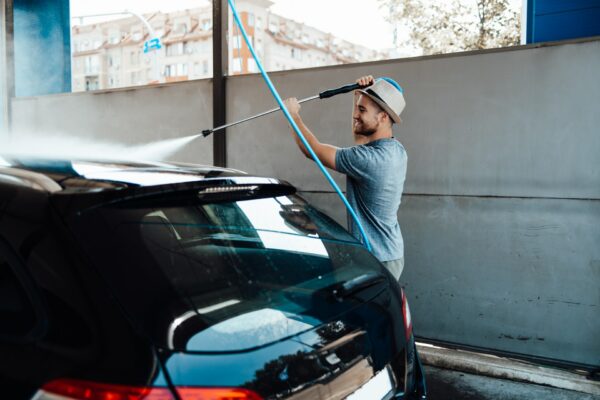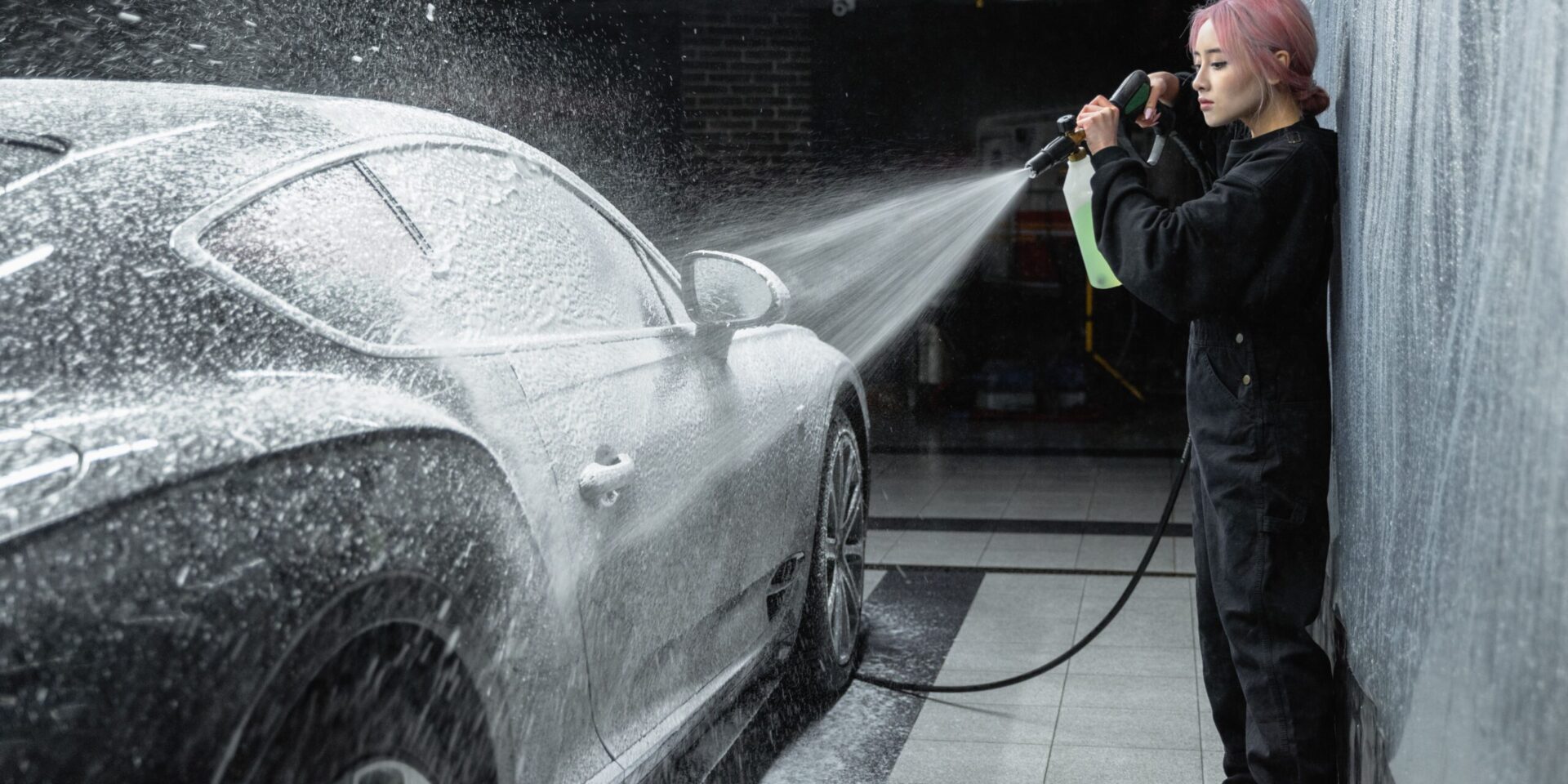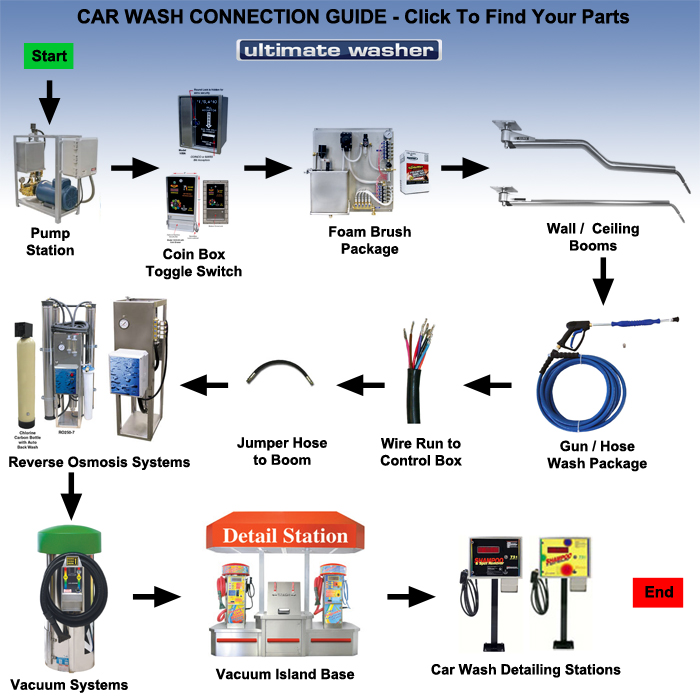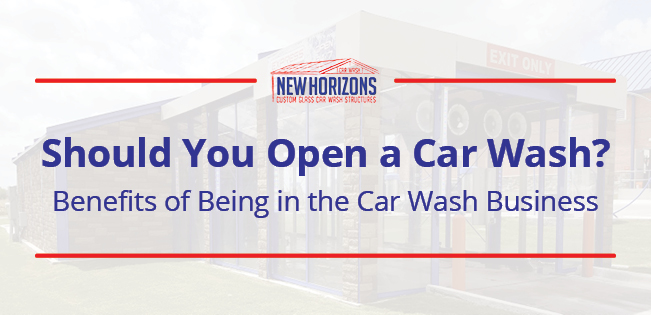Breaking Down the Costs of Launching a Car Wash Venture
Starting a car wash business can be a lucrative venture, but it requires careful planning and consideration of the associated costs. The initial investment for opening a car wash business can be substantial, and it’s essential to understand the various expenses involved to create a realistic budget. In this article, we will provide a comprehensive breakdown of the costs associated with launching a car wash venture, including the initial investment, equipment costs, water and utility expenses, marketing and advertising costs, staffing and labor expenses, and ongoing maintenance and repair costs.
One of the most significant expenses when opening a car wash business is the initial investment. This includes the cost of land acquisition, equipment, and construction. The total upfront cost can range from $200,000 to over $1 million, depending on the size and type of car wash. It’s crucial to factor in the cost of equipment, such as tunnel car washes, automatic car washes, and self-serve car washes, which can range from $50,000 to $200,000. Additionally, the cost of water and utility expenses, such as water recycling systems and energy-efficient equipment, should be considered to minimize ongoing costs.
Marketing and advertising expenses are also a significant consideration when opening a car wash business. Effective marketing strategies, such as social media advertising and promotional materials, can help attract customers and increase revenue. However, these expenses can add up quickly, and it’s essential to create a budget that allocates sufficient funds for marketing and advertising.
Staffing and labor costs are another essential expense to consider when opening a car wash business. Hiring and training employees can be a significant investment, and it’s crucial to find the right staff and provide ongoing training and support to ensure the success of the business.
Finally, ongoing expenses, such as maintenance and repair costs, supply expenses, and insurance premiums, should be factored into the budget to ensure the longevity of the business. By understanding the various costs associated with launching a car wash venture, entrepreneurs can create a realistic budget and make informed decisions to ensure the success of their business.
Opening a car wash business requires careful consideration of the associated costs, including the initial investment, equipment costs, water and utility expenses, marketing and advertising costs, staffing and labor expenses, and ongoing maintenance and repair costs. By understanding these expenses, entrepreneurs can create a comprehensive budget and make informed decisions to ensure the success of their business.
Initial Investment: What to Expect When Opening a Car Wash
The initial investment required to start a car wash business can vary widely, depending on the size and type of car wash. On average, the total upfront cost can range from $200,000 to over $1 million. This includes the cost of land acquisition, equipment, and construction. For example, a small, self-serve car wash may require an initial investment of around $200,000, while a large, tunnel car wash can cost upwards of $1 million.
One of the most significant expenses when opening a car wash business is the cost of equipment. This can include tunnel car washes, automatic car washes, and self-serve car washes, as well as water recycling systems, energy-efficient equipment, and other necessary machinery. The cost of equipment can range from $50,000 to $200,000, depending on the type and quality of the equipment.
In addition to equipment costs, the initial investment for a car wash business also includes the cost of land acquisition and construction. This can include purchasing or leasing a plot of land, as well as building and installing the necessary infrastructure, such as water and electrical systems. The cost of land acquisition and construction can vary widely, depending on the location and size of the car wash.
Other expenses to consider when opening a car wash business include permits and licenses, insurance, and marketing and advertising costs. These expenses can add up quickly, and it’s essential to factor them into the initial investment to ensure the success of the business.
When opening a car wash business, it’s essential to carefully consider the initial investment and create a comprehensive budget that takes into account all of the necessary expenses. This includes estimating startup costs, projecting revenue, and planning for ongoing expenses. By doing so, entrepreneurs can ensure the success of their business and create a solid foundation for long-term growth.
The cost of opening a car wash business can be significant, but with careful planning and budgeting, it can also be a lucrative venture. By understanding the initial investment required to start a car wash business, entrepreneurs can make informed decisions and create a successful business that meets their needs and goals.
Equipment Costs: A Detailed Analysis of Car Wash Machinery Expenses
When it comes to opening a car wash business, one of the most significant expenses is the cost of equipment. The type and quality of equipment used can greatly impact the overall cost of the business. In this section, we will delve into the costs of car wash equipment, including tunnel car washes, automatic car washes, and self-serve car washes.
Tunnel car washes are one of the most common types of car wash equipment. These machines use a combination of high-pressure jets and soft brushes to clean vehicles. The cost of a tunnel car wash can range from $50,000 to $200,000, depending on the size and features of the machine.
Automatic car washes are another type of equipment used in the car wash industry. These machines use a combination of high-pressure jets and robotic arms to clean vehicles. The cost of an automatic car wash can range from $30,000 to $100,000, depending on the size and features of the machine.
Self-serve car washes are a popular option for car wash businesses that want to offer customers a more affordable and convenient option. These machines allow customers to wash their own vehicles using a combination of high-pressure jets and soap. The cost of a self-serve car wash can range from $10,000 to $50,000, depending on the size and features of the machine.
In addition to the cost of the equipment itself, there are also other expenses to consider when opening a car wash business. These include the cost of installation, maintenance, and repair. It’s essential to factor these costs into the overall budget to ensure the success of the business.
When it comes to opening a car wash business, it’s essential to carefully consider the cost of equipment and factor it into the overall budget. By doing so, entrepreneurs can ensure the success of their business and create a solid foundation for long-term growth. The cost of equipment can vary widely, depending on the type and quality of the machine. However, with careful planning and budgeting, it’s possible to find affordable options that meet the needs of the business.
In conclusion, the cost of equipment is a significant expense when opening a car wash business. However, by carefully considering the options and factoring the cost into the overall budget, entrepreneurs can ensure the success of their business. Whether it’s a tunnel car wash, automatic car wash, or self-serve car wash, there are affordable options available that can meet the needs of the business.
Water and Utility Costs: Managing Expenses for a Car Wash Business
Water and utility costs are a significant expense for car wash businesses. The cost of water, electricity, and other utilities can add up quickly, and it’s essential to manage these expenses to ensure the success of the business. In this section, we will discuss ways to reduce water consumption and lower utility bills, such as using water recycling systems and energy-efficient equipment.
One of the most effective ways to reduce water consumption is to install a water recycling system. These systems collect and treat wastewater, allowing it to be reused in the car wash process. This can significantly reduce the amount of water used in the business, resulting in lower water bills. Additionally, water recycling systems can also help to reduce the amount of wastewater discharged into the environment.
Another way to reduce utility costs is to use energy-efficient equipment. LED lighting, for example, can be used to illuminate the car wash area, reducing energy consumption and costs. Additionally, energy-efficient pumps and motors can be used to reduce energy consumption and costs associated with water pumping and treatment.
In addition to reducing water consumption and energy costs, it’s also essential to manage other utility costs, such as waste disposal and sewage. Implementing a recycling program and reducing waste can help to minimize these costs. Regular maintenance of equipment and facilities can also help to reduce utility costs by identifying and addressing any issues before they become major problems.
When opening a car wash business, it’s essential to consider the cost of water and utilities and factor them into the overall budget. By implementing water-saving measures and using energy-efficient equipment, businesses can reduce their utility costs and ensure the success of their venture. The cost of water and utilities can vary depending on the location and size of the business, but with careful planning and management, these costs can be minimized.
By managing water and utility costs, car wash businesses can reduce their expenses and increase their profitability. This can be achieved by implementing water-saving measures, using energy-efficient equipment, and regularly maintaining equipment and facilities. By taking these steps, businesses can ensure the success of their venture and create a solid foundation for long-term growth.
Marketing and Advertising Expenses: Reaching Your Target Audience
Marketing and advertising are crucial components of any successful car wash business. The cost of marketing and advertising can vary widely, depending on the size and scope of the business. In this section, we will discuss the costs associated with marketing and advertising a car wash business, including social media advertising, print media, and promotional materials.
Social media advertising is a popular and cost-effective way to reach a target audience. Platforms like Facebook and Instagram offer a range of advertising options, from sponsored posts to targeted ads. The cost of social media advertising can vary depending on the scope of the campaign, but it’s generally more affordable than traditional forms of advertising.
Print media, such as newspapers and flyers, can also be an effective way to reach a target audience. However, the cost of print media can be higher than social media advertising, and it may not be as targeted. Promotional materials, such as business cards and brochures, can also be used to promote a car wash business.
When creating a marketing and advertising budget for a car wash business, it’s essential to consider the target audience and the most effective ways to reach them. A well-planned marketing and advertising strategy can help to attract new customers and increase revenue.
The cost of marketing and advertising can vary widely, depending on the size and scope of the business. However, with careful planning and budgeting, it’s possible to create an effective marketing and advertising strategy that meets the needs of the business. By considering the target audience and the most effective ways to reach them, car wash businesses can create a marketing and advertising budget that helps to drive growth and revenue.
When opening a car wash business, it’s essential to consider the cost of marketing and advertising and factor it into the overall budget. By doing so, businesses can ensure that they have a solid marketing and advertising strategy in place to attract new customers and drive growth.
Staffing and Labor Costs: Hiring and Training Employees for Your Car Wash
When opening a car wash business, one of the most significant expenses is staffing and labor costs. Hiring and training employees is essential to ensure the success of the business, but it can also be a costly endeavor. In this section, we will discuss the costs associated with hiring and training employees for a car wash business, including wages, benefits, and training expenses.
The cost of hiring employees for a car wash business can vary depending on the location, size, and type of business. On average, the cost of hiring a single employee can range from $500 to $2,000, depending on the position and the level of experience required. Additionally, the cost of training employees can also be significant, ranging from $500 to $2,000 per employee, depending on the type and duration of the training.
Wages and benefits are also a significant expense for car wash businesses. The cost of wages can vary depending on the location, size, and type of business, but on average, the cost of wages can range from $10 to $20 per hour, depending on the position and the level of experience required. Benefits, such as health insurance and paid time off, can also add to the overall cost of staffing and labor.
When hiring and training employees for a car wash business, it’s essential to consider the importance of finding the right staff and providing ongoing training and support. A well-trained and motivated staff can help to ensure the success of the business, while a poorly trained or unmotivated staff can lead to decreased productivity and increased turnover.
To minimize staffing and labor costs, car wash businesses can consider implementing cost-saving measures, such as hiring part-time or seasonal employees, or using online training programs to reduce the cost of training. Additionally, businesses can also consider offering competitive wages and benefits to attract and retain top talent.
By understanding the costs associated with staffing and labor, car wash businesses can create a realistic budget and make informed decisions about hiring and training employees. By finding the right staff and providing ongoing training and support, businesses can ensure the success of their venture and create a solid foundation for long-term growth.
Ongoing Expenses: Maintenance, Repairs, and Supplies for Your Car Wash
Once a car wash business is up and running, there are several ongoing expenses that need to be considered to ensure the longevity and success of the venture. These expenses can be significant and may include maintenance and repair costs, supply expenses, and insurance premiums. Understanding these costs and finding ways to minimize them is crucial for maintaining a profitable car wash business.
Maintenance and repair costs can be substantial, especially if the car wash equipment is not properly maintained. Regular maintenance can help prevent breakdowns and reduce the need for costly repairs. This includes tasks such as cleaning and lubricating equipment, checking and replacing worn-out parts, and performing routine inspections. By staying on top of maintenance, car wash owners can help extend the life of their equipment and reduce downtime.
Supply expenses are another significant ongoing cost for car wash businesses. This includes the cost of cleaning solutions, waxes, and other chemicals used in the car wash process. Additionally, car washes need to purchase supplies such as towels, brushes, and other equipment. To minimize these costs, car wash owners can consider purchasing supplies in bulk or negotiating with suppliers to secure better prices.
Insurance premiums are also an ongoing expense for car wash businesses. This includes liability insurance to protect against accidents and property damage, as well as equipment insurance to protect against breakdowns and other equipment-related issues. By shopping around and comparing insurance rates, car wash owners can find the best coverage at the most affordable price.
In addition to these expenses, car wash owners also need to consider the cost of upgrades and replacements. As equipment becomes outdated or worn out, it may need to be replaced or upgraded to maintain efficiency and effectiveness. By planning for these expenses and setting aside funds for upgrades and replacements, car wash owners can ensure that their business remains competitive and profitable.
By understanding and managing these ongoing expenses, car wash owners can help ensure the success and longevity of their business. This includes staying on top of maintenance and repairs, minimizing supply expenses, and finding ways to reduce insurance premiums. By taking a proactive approach to managing these expenses, car wash owners can help maintain a profitable business and achieve their goals.
How to Create a Realistic Budget for Your Car Wash Business
Creating a realistic budget is a crucial step in opening a car wash business. A well-planned budget helps car wash owners estimate startup costs, project revenue, and plan for ongoing expenses. By following a step-by-step approach, car wash owners can create a budget that ensures the success and longevity of their business.
Step 1: Estimate Startup Costs
The first step in creating a budget is to estimate the startup costs associated with opening a car wash business. This includes the cost of land acquisition, equipment, construction, and initial marketing expenses. Car wash owners should research and gather quotes from suppliers and contractors to get an accurate estimate of these costs. The total upfront cost of opening a car wash business can range from $100,000 to over $1 million, depending on the size and type of car wash.
Step 2: Project Revenue
Once the startup costs are estimated, car wash owners need to project revenue. This includes estimating the number of cars that will be washed per day, the average price per wash, and the revenue generated from other services such as detailing and oil changes. Car wash owners should research the market and gather data on the demand for car wash services in their area to make accurate projections.
Step 3: Plan for Ongoing Expenses
In addition to startup costs and revenue projections, car wash owners need to plan for ongoing expenses. This includes maintenance and repair costs, supply expenses, insurance premiums, and labor costs. Car wash owners should research and gather quotes from suppliers and contractors to get an accurate estimate of these costs.
Step 4: Review and Adjust the Budget
Once the budget is created, car wash owners should regularly review and adjust it to ensure the success of their business. This includes monitoring revenue and expenses, identifying areas for cost savings, and making adjustments as needed. By regularly reviewing and adjusting the budget, car wash owners can ensure that their business remains profitable and competitive.
Tips for Creating a Realistic Budget
When creating a budget for a car wash business, there are several tips to keep in mind. First, car wash owners should prioritize their expenses and focus on the most critical costs such as equipment and labor. Second, car wash owners should research and gather quotes from multiple suppliers and contractors to get the best prices. Finally, car wash owners should regularly review and adjust their budget to ensure the success of their business.
By following these steps and tips, car wash owners can create a realistic budget that ensures the success and longevity of their business. A well-planned budget helps car wash owners estimate startup costs, project revenue, and plan for ongoing expenses, making it easier to navigate the challenges of opening a car wash business.





